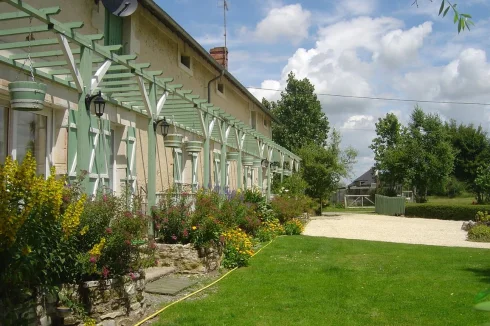Hospital Care Costs in France
Tuesday 04 December 2012
The level of reimbursement of your costs of hospital care in France will depend on a range of factors.
If you are admitted to a hospital in France the standard level of reimbursement of your costs is at the rate of 80%, leaving 20% to be funded by you. The same principle applies if you receive hospital care at home.
However, beyond this basic apportionment there lies a range of scenarios, which means that more often than not the final arithmetic works out rather differently, although not always to the detriment of the patient.
The frequent lack of clarity is due in some measure to the hybrid nature of the health system in France and the peculiarities of the charges that apply.There are both public and private hospitals in France and in most cases the private hospitals (normally referred to as cliniques) apply the same charges as public hospitals. So you may be referred to either type of hospital by your doctor.
However, whether public or private, most consultants working in them are private, and they entitled to set their own patient charges.
Accordingly, while you will normally be reimbursed at the rate of 80%, this will only be against the official tariffs that have been set by the government. You will be obliged to meet the additional costs above this threshold.
There are two elements to these charges:
- Ticket Modérateur - The bizarrely named ticket modérateur is the 20% of the official rate for which the patient is responsible.
- Dépassements d’honoraires - The is the excess charge made by the consultant above the official rate.
These second charges are a source of profound controversy in France, as they have become very widespread. In some rare cases (notably in Paris) they can be up to 10 times the official tariff!
The difficulty for the patient is knowing the level of the charges and reimbursement before treatment takes place.
Consultants are obliged to display their tariffs in their waiting room, and prior to any surgery they are also obliged by law to provide you with full information on the costs and the likely level of your reimbursement. However, it is far better to take the initiative and pose the question.
If you consider the charges excessive or unaffordable you are free to select another hospital/consultant, although this will inevitably prolong the time to treatment.
Ancillary Charges
There are also a range of ancillary additional charges.
Thus, if you are admitted to hospital for any period over 24 hours, then you will pay a daily charge of €18 called the forfait journalier. This charge is imposed to cover the cost of ward services and meals.
In addition, if you seek a private room, telephone or other services that may not be generally provided to all patients there additional charges will apply.
Assistance with Costs
The level of your costs will also depend on whether you have a complementary health policy, the nature of your illness, and your financial circumstances.
i. Complementary Health Policy
Most of the additional hospital costs discussed above can be covered by a complementary ‘top-up’ health policy.
Although it is not a legal requirement to do so, over 80% of French nationals take out such a policy.
The terms of these policies vary widely, with some only meeting the most basic of additional costs, whilst other more expensive (but rarely sensible) policies will cover all of your costs. As usual you need to read the small print and take out a policy that best suits your circumstances.
You can read more at Complementary 'Top-Up' Health Policies.
ii. Nature of Ilness
If you have a serious illness, defined in France as one of the affection de longue durée (ALD), then your ALD costs are covered at the rate of 100% of the official tariff.
Your doctor will advise whether your illness is on the official list, and will be able to make application for your treatment on this basis.
Note, however, that you will still be faced with the prospect of dépassements d’honoraires even if you have a major illness.
iii. Income
If you are on a low-income you may be entitled to obtain reimbursement of your health costs at the rate of 100%. In order to do so you will need to make application for the CMU Complémentaire (CMUC).
Once again, you will still be liable for the dépassements d’honoraires, although consultants have been requested by the government to only charge the official tariffs to those in receipt of CMUC. Some are better at sticking to this convention than others!
You can read more at CMU Protection Complémentaire (CMU–C).
S1 Certificates
Contrary to widespread belief, the fact that you may be on an 'E' or 'S' form health certificate does not grant you exemption from these charges.
This certificate only means you are exempt from paying the annual affiliation charge to the health system; you continue to be responsible for the actual costs of health care on the same basis as French nationals.
Thank you for showing an interest in our News section.
Our News section is no longer being published although our catalogue of articles remains in place.
If you found our News useful, please have a look at France Insider, our subscription based News service with in-depth analysis, or our authoritative Guides to France.
If you require advice and assistance with the purchase of French property and moving to France, then take a look at the France Insider Property Clinic.





